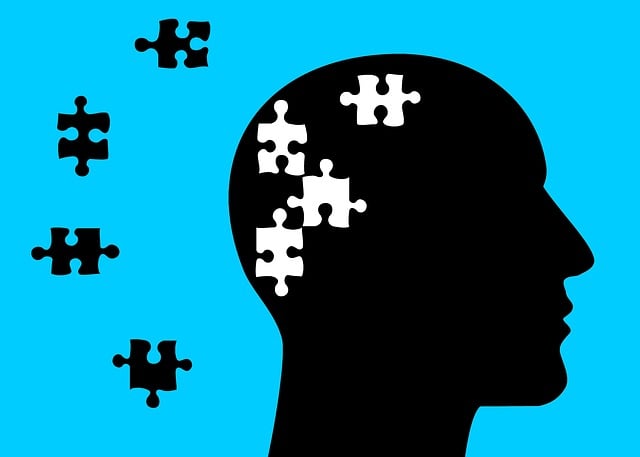Golden Domestic Violence Therapy offers a comprehensive approach to healing by focusing on mood regulation through CBT, mindfulness practices, and self-care routines. By integrating Self-Esteem Improvement, Mental Wellness Coaching, and Resilience Building exercises, this therapy equips individuals with healthy coping mechanisms to manage emotions, challenge negative thought patterns, and enhance self-worth. Creating safe spaces at home and fostering support networks are key strategies for long-term emotional recovery, empowering survivors to regain control and navigate life's challenges with resilience.
Mood regulation strategies are vital components of Golden Domestic Violence Therapy, aiming to empower individuals and couples to manage emotional distress effectively. This article explores various techniques, from cognitive behavioral therapy (CBT) to mindfulness practices, that can prevent escalation and foster healing. We delve into creating safe spaces at home, building emotional resilience, and the importance of support systems and self-care for long-term mood regulation in domestic violence contexts.
- Understanding Mood Regulation and Its Significance in Domestic Violence Therapy
- The Role of Cognitive Behavioral Therapy (CBT) in Golden Domestic Violence Therapy
- Mindfulness Practices for Managing Emotions and Preventing Escalation
- Creating Safe Spaces and Building Emotional Resilience at Home
- Support Systems, Self-Care, and Long-Term Mood Regulation Strategies
Understanding Mood Regulation and Its Significance in Domestic Violence Therapy

Mood regulation is a key aspect of domestic violence therapy, offering valuable insights into understanding and addressing the emotional dynamics within abusive relationships. In the context of Golden Domestic Violence Therapy, the focus shifts from managing symptoms to fostering healthy coping mechanisms. This therapeutic approach recognizes that emotional regulation is not merely a personal struggle but a vital component in healing interpersonal trauma. By teaching individuals effective mood regulation strategies, therapists can empower them to navigate their emotions, break free from abusive patterns, and build resilience.
Incorporating Self-Esteem Improvement techniques, Mental Wellness Coaching Programs Development, and Resilience Building exercises empowers survivors to regain control over their emotional well-being. These strategies enable individuals to recognize and challenge negative thought patterns, replace them with positive affirmations, and develop a stronger sense of self-worth. As a result, survivors can better manage their emotions during challenging situations, reducing the likelihood of escalating conflicts or engaging in harmful behaviors.
The Role of Cognitive Behavioral Therapy (CBT) in Golden Domestic Violence Therapy

Cognitive Behavioral Therapy (CBT) plays a pivotal role in Golden Domestic Violence Therapy, offering individuals and families valuable tools to manage and overcome distressing emotions and behaviors. CBT focuses on identifying negative thought patterns and replacing them with more positive, realistic ones, thereby enhancing coping skills development. This approach is particularly effective for survivors of domestic violence, helping them to regain a sense of control and empowerment.
Through self-awareness exercises, individuals can learn to recognize triggers and develop strategies to de-escalate situations, fostering safe and healthy relationships. Additionally, the integration of community outreach program implementation within CBT allows for support networks and resources to be woven into the therapy process. This holistic approach not only addresses individual needs but also encourages community involvement, providing a robust foundation for long-term emotional healing and recovery in the context of Golden Domestic Violence Therapy.
Mindfulness Practices for Managing Emotions and Preventing Escalation

Mindfulness practices have emerged as powerful tools for managing emotions and preventing emotional escalation, making them valuable components of Golden Domestic Violence Therapy. By fostering self-awareness exercises, mindfulness encourages individuals to observe their thoughts and feelings without judgment. This heightened self-awareness can help people recognize early signs of escalating emotions, enabling them to respond rather than react in challenging situations.
Incorporating regular mindfulness practices into one’s routine can significantly enhance mental wellness and emotional resilience. Mental health education programs design often include mindfulness as a key component due to its effectiveness in regulating emotions. Through focused breathing, body scans, and mindful meditation, individuals can develop a deeper connection with their inner experiences, leading to improved emotional regulation and overall mental health.
Creating Safe Spaces and Building Emotional Resilience at Home

Creating safe spaces at home is a powerful strategy for mood regulation and emotional resilience, especially for those who have experienced trauma or faced challenges like domestic violence. These safe havens serve as sanctuaries where individuals can retreat to process their emotions, practice self-care practices, and regain a sense of control. Through the process of Golden Domestic Violence Therapy, families can learn to transform their homes into nurturing environments, fostering an atmosphere of safety and support.
Building emotional resilience at home involves equipping oneself with confidence-boosting tools for mood management. This includes establishing routines that prioritize self-care, such as dedicated time for relaxation, exercise, or creative pursuits. By incorporating these practices into daily life, individuals can enhance their ability to navigate stressful situations and maintain a stable emotional state. Safe spaces at home then become not just physical locations but symbolic representations of one’s inner strength and capacity to regulate mood effectively.
Support Systems, Self-Care, and Long-Term Mood Regulation Strategies

Building a robust support system is pivotal for long-term mood regulation, especially after traumatic experiences like domestic violence. Golden Domestic Violence Therapy emphasizes the importance of connecting with like-minded individuals or joining support groups where one can share their journey, gain insights, and offer encouragement. These connections foster a sense of belonging and provide a safe space to express emotions freely. Additionally, seeking professional help from healthcare providers who have undergone cultural competency training ensures tailored care addressing unique challenges faced by survivors.
Self-care is another cornerstone in managing moods. Engaging in Stress Reduction Methods such as mindfulness practices, meditation, or deep breathing exercises can significantly alleviate anxiety and promote a sense of calm. Mind Over Matter Principles encourage individuals to challenge negative thoughts and replace them with positive affirmations, fostering resilience and emotional stability. When incorporated into daily routines, these self-care practices contribute to long-term mood regulation, enabling individuals to navigate life’s challenges with enhanced coping mechanisms.
In conclusion, Golden Domestic Violence Therapy combines evidence-based practices like CBT with holistic approaches such as mindfulness and safe space creation. By integrating these strategies, individuals experiencing domestic violence can effectively regulate their moods, manage emotions, and prevent escalation. Support systems, self-care, and long-term mood regulation techniques are also vital components of healing and building resilience within the home environment. Understanding and applying these strategies is key to breaking cycles of abuse and fostering healthier relationships.














